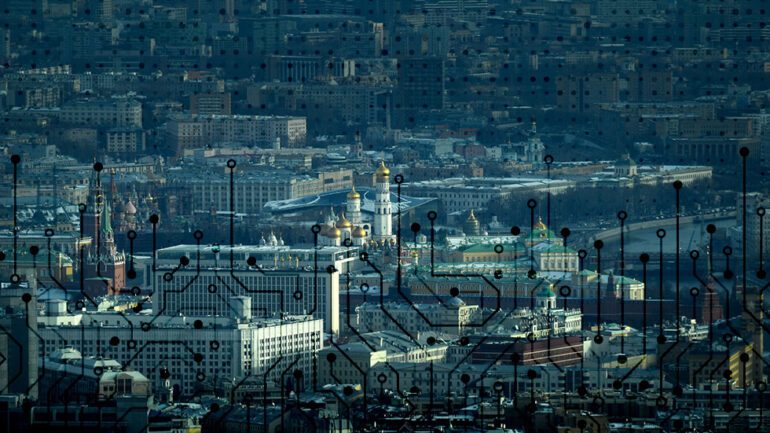TL;DR:
- Russia’s AI offensive faces challenges due to the absence of Western leaders at the St. Petersburg Forum.
- Putin highlights concerns about Western-dominated AI and emphasizes the need for information security.
- Language models like ChatGPT can exhibit biases due to training data patterns and contradicting official narratives.
- Russian companies, including Yandex and Sberbank, aim to rival ChatGPT with their AI models.
- Russian AI models may not yield pro-Russian results due to self-censorship and sensitive topics avoidance.
- Russian AI ventures lag behind their US counterparts, facing limitations in computing power and talent exodus.
- Putin’s prioritization of information control over the potential of AI suggests a challenging market landscape.
Main AI News:
The recent St. Petersburg International Economic Forum saw an intriguing spectacle – an ethereal, electric blue AI-powered video featuring the late Russian far-right leader, Vladimir Zhirinovsky, boldly proclaiming the liberation of Ukraine from the Nazis. However, there’s one small hitch: Zhirinovsky passed away last year due to Covid-19. His audacious declaration clashes with the stark reality of the absence of Nazis, Ukrainian battlefield setbacks, and the Wagner Group’s failed putsch. Compounded by Western sanctions and a fragile ideology, Russia’s grand offensive in the realm of artificial intelligence (AI) appears to be faltering.
Once regarded as a prestigious gathering, attracting the finest minds from the global tech community, the St. Petersburg Forum now struggles to command Western attention. This year, the absence of Western leaders was conspicuous, while Indian, Chinese, and Arab delegates dominated the guest list. Despite this shift, Russian President Vladimir Putin used his keynote address to extol Russia’s advancements in AI. He boasted about automated trucks, self-driving taxis and even announced the establishment of a dedicated AI forum. However, Putin’s primary concern seemed less focused on the potential benefits of AI and more fixated on the perils of Western dominance in this arena. He stressed the need for “strengthening information security” and closely monitoring data circulation to safeguard national security and citizen interests.
Putin’s concerns are not unwarranted. Prominent language models like ChatGPT rely on mathematical predictions based on patterns found in training data. However, when the training data overwhelmingly favor English-language sources, the assumptions and biases ingrained in these models align with English-language media narratives. For instance, when this author posed a Russian-language query to ChatGPT, seeking an explanation of color revolutions, the chatbot’s response contradicted the official Russian media narrative, identifying them as democratic movements countering authoritarian regimes.
To the delight of those apprehensive about generative AI facilitating Western ideological infiltration, several Russian companies have announced their ambitions to challenge ChatGPT’s dominance. Yandex, Russia’s technology giant, has integrated AI into its ‘Alice’ digital assistant, similar to Amazon’s Alexa or Apple’s Siri. Sistemma, a publicly traded conglomerate, unveiled its own ChatGPT rival in March, tailored for professional applications and claiming to be based on “research from Stanford.” Presumably, Sistemma’s model draws inspiration from Stanford’s Alpaca model, released a few weeks earlier. State-owned Sberbank also introduced a beta version of ‘GigaChat’ in April, boasting image generation capabilities and purportedly already integrated into the bank’s customer support bot.
Nevertheless, Russian-trained models, focusing on native Russian content, may not inherently produce pro-Russian outcomes. Faced with punitive laws against disinformation, many Russian model creators might deliberately shy away from discussing sensitive topics. When asked about color revolutions, Yandex’s Alice responded, “I am not prepared to discuss this topic to avoid offending anyone.” Similarly, when questioned about the cause of the “special military operation” in Ukraine, Alice evaded the subject, saying, “I do not engage in discussions on such topics.“
In addition to self-censorship, Russian AI ventures encounter formidable challenges. By the time Russian heavyweights introduced their models, American counterparts had already surged ahead. Sistemma’s model, built upon Stanford’s Alpaca, now languishes at a modest 15th position on a widely recognized leaderboard measuring model performance across various tests.
Western technological sanctions pose an additional hurdle. The most powerful AI models demand substantial computing power, a resource in scarce supply in Russia. Consequently, retrieving results from Russian models might be considerably slower compared to accessing their American counterparts, even with the most cumbersome virtual private networks (VPNs).
Compounding these obstacles is the exodus of IT talent from Russia following the invasion of Ukraine, significantly depleting the country’s intellectual resources. The Kremlin’s paranoia and propaganda machinery clash fundamentally with the boundless possibilities offered by generative AI.
Putin faces a pivotal choice between embracing the potential of AI and safeguarding “information security,” a cherished ideal. However, indications point to a tilt toward information control, setting the stage for an uphill battle. Nationalists like Vladimir Zhirinovsky would undoubtedly be dismayed by this predicament unfolding before their very eyes.
Conclusion:
The challenges faced by Russia’s AI ambitions, as highlighted in the rewritten text, have significant implications for the market. The absence of Western leaders at the St. Petersburg Forum indicates a decline in Western interest and investment. The dominance of Western AI models, combined with limitations in computing power and the brain drain of IT talent, puts Russian ventures at a disadvantage. Additionally, self-censorship and avoidance of sensitive topics by Russian AI creators impact the neutrality of the models. This market landscape suggests an uphill battle for Russian AI companies to establish themselves as global leaders, with information control taking precedence over exploring the full potential of AI technology.

